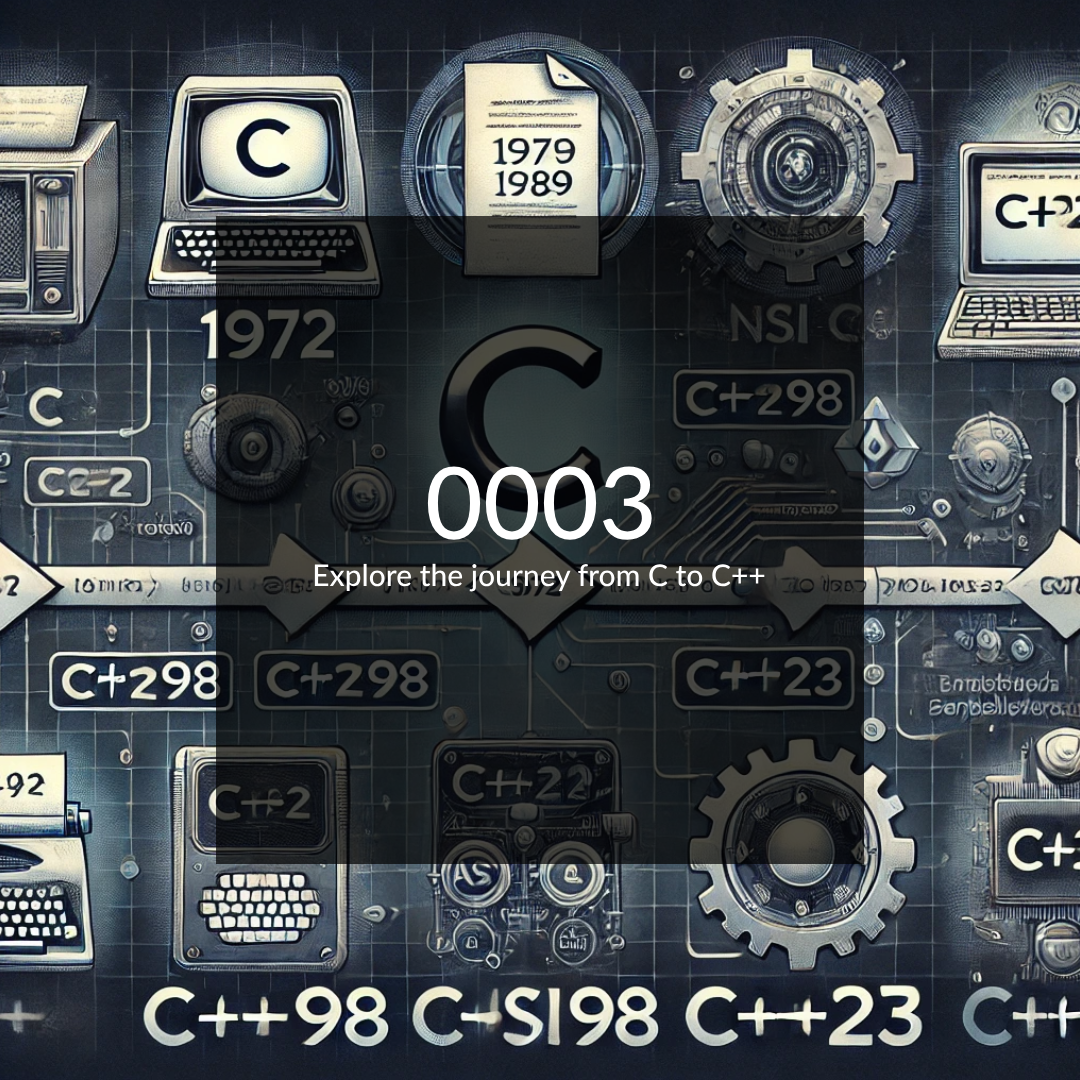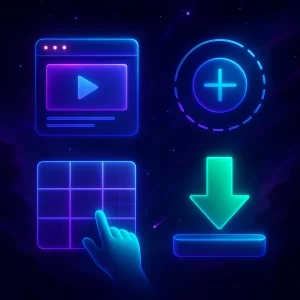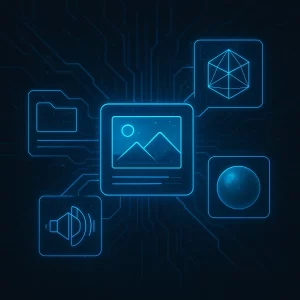C++ 0003 Explore the journey from C to C++

Understanding the Foundations of C and the Evolution to C++
The Legacy of C
Developed in 1972 by Dennis Ritchie at Bell Labs, C was designed as a minimalistic yet powerful language for system programming. It offered:
- Efficiency: Ideal for operating systems and resource-constrained environments.
- Portability: Made it easy to write code once and run it on various platforms.
In 1973, Unix was rewritten in C, showcasing its flexibility and performance. With the publication of “The C Programming Language” by Kernighan and Ritchie in 1978, C became the standard for system-level programming.
By 1989, the American National Standards Institute (ANSI) formalized ANSI C, followed by the ISO’s adoption in 1990 (C90). This created a universal standard that made C programs reliable and portable across compilers.
The Birth of C++
C++ emerged in 1979 as an extension of C, introducing object-oriented programming (OOP). Developed by Bjarne Stroustrup, it was designed to retain C’s power while adding abstraction and modularity through OOP.
Key milestones:
- C++98: Standardized in 1998, laying the foundation for modern development.
- C++11 to C++23: Introduced cutting-edge features like smart pointers, concurrency, and modules, ensuring C++ remains relevant in a rapidly evolving tech landscape.
Why Choose C++?
C++ thrives where performance and control matter:
- Video Games: Handles high-speed graphics and real-time processing.
- Embedded Systems: Provides low-level control in devices like medical equipment or automotive systems.
- AI and Simulations: Powers intensive algorithms and simulations.
With an active community, industry adoption, and a plethora of third-party libraries, C++ continues to dominate fields requiring speed, reliability, and scalability.
FAQs
1. Should I learn C before C++?
No! You can directly learn C++ as it encompasses C’s features.
2. Is C++ dying?
Absolutely not. C++ remains one of the top programming languages due to its relevance in critical applications and constant updates.
Conclusion
C++ builds on the legacy of C, providing tools for both low-level and high-level programming. Whether you’re diving into game development, embedded systems, or AI, C++ equips you with the control and power needed to excel.
Tags
ocean interaction, unofficial documentation, unreal engine, c++, c, cpp, video games, embedded systems, programming, programming language






